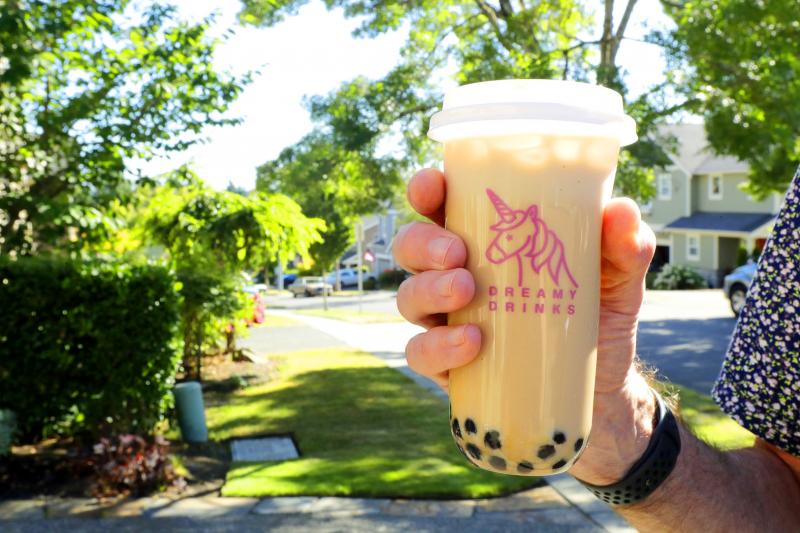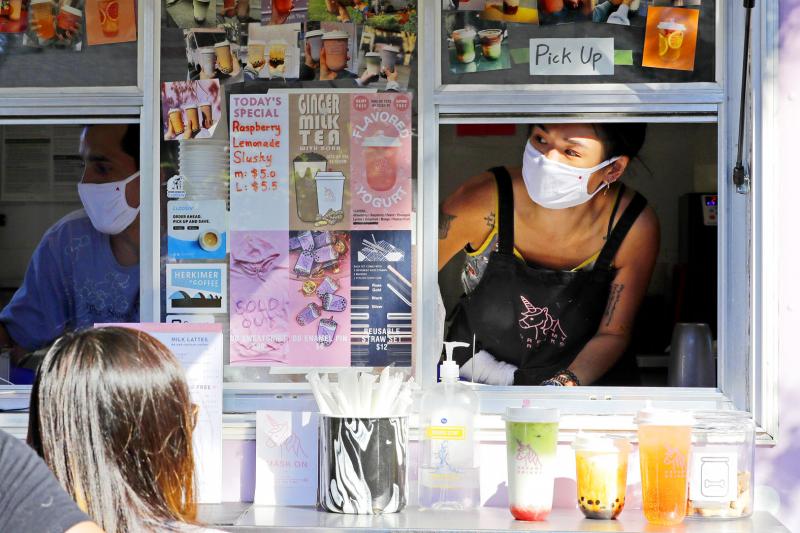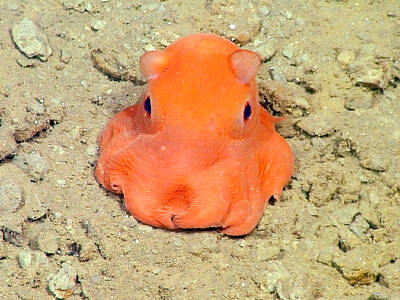Taiwan’s national drink, pearl milk tea, has taken the world by storm in recent years, and it is the addition of tapioca balls — also known variously as “pearls,” “boba” and “bubbles” — that creates the beverage’s unique flavor and textural experience. However, foreign media are reporting that logistical delays have caused both Taiwan-produced tapioca balls and tapioca powder from Thailand to be stuck inside shipping containers as the shipments await customs approval.
As the COVID-19 pandemic continues to wreak havoc on the global shipping industry, goods and commodities shipped from Asia, including Taiwan and Thailand, have become held up at US ports, caught up in a backlog of unprocessed shipments. This has led to shortages of some raw materials, causing many US drinks vendors to grumble nonstop. One such vendor has fumed that with no tapioca balls, many customers will not set foot inside the shop to buy a drink.
Oliver Yoon, global vice president of sales and marketing at Boba Direct, a pearl milk tea product supplier based in Arlington Heights, Illinois, US, says that about one month ago the company began to experience shortages of raw materials. Yoon adds that it is a nationwide crisis and says he expects the situation will not begin to improve until the end of the month.

Photo: AP 照片:美聯社
Tea & Others shop owner Alex Ou says some customers will not buy a drink if the shop has run out of boba, adding: “They are literally here for the boba.” Ou says he hopes that customers can be patient, since the shortage of raw materials is only temporary. Nonetheless, it is understandable that this is a depressing time for many businesses, adds Ou.
According to California-based supplier US Boba Co, 99 percent of boba comes from overseas, and although the company has a boba factory in the US, they are still reliant on imported tapioca starch. According to reports, in addition to bubble milk tea vendors, other US businesses are also suffering shortages. Starbucks has reported it is experiencing shortages of cups and sugar syrups, while the pandemic has also caused shortages of home fitness equipment, ice skates and furniture.
(Liberty Times, translated by Edward Jones)

Photo: AP 照片:美聯社
疫情導致全球航運大亂,一些台灣、泰國等亞洲國家貨物卡在美國港口排隊無法入關,導致珍珠奶茶「珍珠」的原料短缺,讓不少美國飲料店業者叫苦連天,更有業者抱怨,沒有「珍珠」讓許多顧客不願上門買飲料。
綜合外媒報導,近年風靡全球的台灣飲料「珍珠奶茶」,在飲料中添加珍珠創造獨特風味與口感,但因為運輸延誤,來自台灣的珍珠以及來自泰國用來製造珍珠的木薯粉,通通卡在船上貨櫃中等待進關。
位於芝加哥的珍奶產品供應商「Boba Direct」銷售副總奧利佛(Oliver Yoon)說,大概在一個月前就出現原料短缺情形,這是一場全國性的風暴,最快要等到四月底才能紓緩。
「Tea & Others」飲料店老闆艾利克斯(Alex Ou)則表示,如果沒有珍珠,一些顧客根本不願上門購買飲料,「他們都是為珍珠而來」。艾利克斯希望消費者能更有耐心。原料短缺只是暫時的,然而對其他業者來說,這件事的確讓人感到沮喪。
加州珍珠供應商「美國波霸公司」(US Boba Co.)表示,美國有百分之九十九的珍珠來自國外進口,即便他們在美國有自己的工廠,仍需要依靠國外進口木薯粉。報導指,除了珍珠奶茶外,星巴克也出現杯子和糖漿短缺情形,甚至健身器材、溜冰鞋、家具等其他產品,幾乎都受到影響。
(自由時報)

Bilingual Story is a fictionalized account. 雙語故事部分內容純屬虛構。 I stand by the Miluo River as dusk falls. The court betrayal is too much. I served Chu with loyalty. I forged alliances and fought corruption. But the whispers of jealous courtiers, the murmurs of treason, spoke louder. The king cast me out. The water looks calm. It promises peace. I step in. The river is cold against my legs. I hear shouts behind me — fishermen calling my name. I keep walking. The calls grow louder, but I do not turn around. The water rises to my chest. It pulls at me. I

In Taiwan, people can use a platform to rent a power washer for a weekend or share unused garage space for someone’s storage needs. These are examples of the sharing economy, a consumption model that has gained widespread adoption worldwide. This approach allows people to rent or share assets like cars, homes or even services, typically through online platforms. This innovative model poses a simple yet powerful question: why purchase infrequently used items when sharing is more practical? By making useful but idle resources accessible, the sharing economy turns them into sustainable opportunities. Internationally, platforms like Airbnb and Uber have popularized

A: Recently, I’ve been seeing mosquitoes flying around in front of my eyes. The doctor said it’s the “flying-mosquito disease.” B: Flying mosquitoes? What a strange name. A: They’re actually called “floaters” in English, meaning floating debris. When fibrous substances in the vitreous body inside the eyeballs increase, floaters can appear in the visual field. B: Oh my goodness. Can you get rid of them? A: According to ophthalmologist Horng Chi-ting’s research, taking the enzymes of certain fruits is likely to help reduce floaters. A: 我最近一直覺得眼前有蚊子飛來飛去,結果醫生說是「飛蚊症」。 B: 飛蚊症?好奇怪的病名。 A: 英文名稱叫「floaters」, 也就是漂浮物的意思。 因為眼球的玻璃體中纖維化物質增多,導致視野出現漂浮物。 B: 天啊!要怎麼把蚊子趕走? A:

Continued from yesterday(延續自昨日) https://www.taipeitimes.com/News/lang Many people may be familiar with flapjack octopuses thanks to Pearl, a charming character from the Pixar film Finding Nemo. However, her portrayal presents several scientific inaccuracies. In reality, flapjack octopuses are deep-sea creatures, which are unsuitable for the brightly lit shallow reef environment depicted in the film. Their primary defense mechanism relies on their reddish coloration, which would be ineffective in the well-lit shallows. Pearl’s famous line, “You guys made me ink,” is another fictional detail that is not consistent with the observed actions of real flapjack octopuses. As common as it is in many other octopus